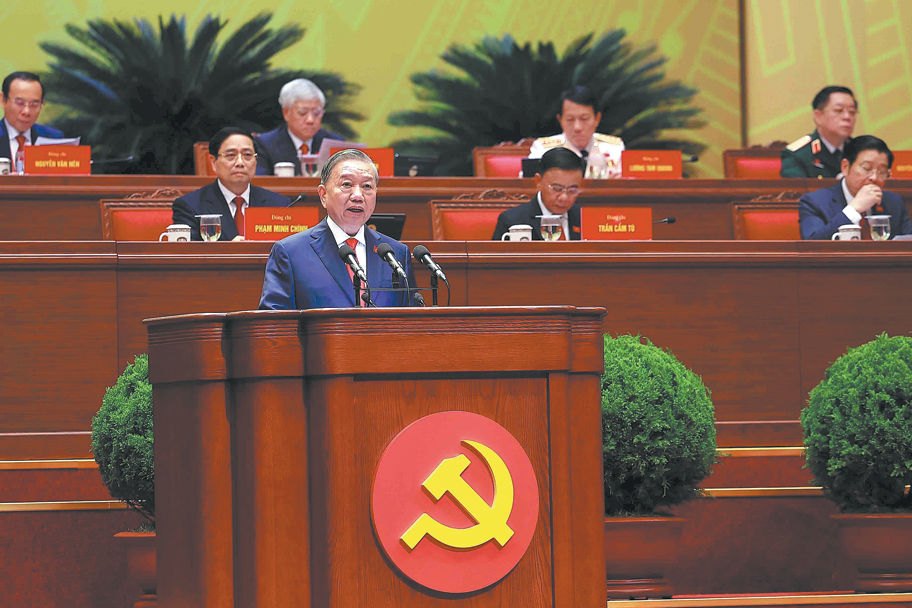2017, 'Year of multilateralism first' for United Nations

PRACTISING, UPHOLDING MULTILATERALISM
During the 72nd session of the General Assembly in September, 196 statements were delivered from the podium of the General Assembly. It was the first time in 11 years that all Member States and Observers addressed the General Assembly.
There was an overwhelming support for multilateralism in the statements in such areas as promoting international peace and prevention, highlighting the needs of people all over the world, upholding Paris Climate Accord, preventing further escalation of nuclear crisis on the Korean Peninsula, and fighting terrorism and extremism, cyber crimes and trans-boundary crimes, etc.
"We need to rekindle faith in multilateralism and confidence in the United Nations as the place where States and civil society can come together to face the most pressing challenges in the world today," Guterres said in his work report.
Since taking office, the UN chief has time and again issued warnings, urging all people on the earth to heed the "unprecedented" challenges and threats to the mankind.
The new secretary-general defended on Jan. 3 the role of the United Nations as being the "cornerstone" of the multilateral approach to solving the worst problems affecting the international community.
"We need to recognize that only global solutions can address global problems and the UN is the cornerstone of that multilateral approach," he said.
The secretary-general promised to promote a dialogue with the organization's personnel and insisted that only working as a team can the United Nations' goals be accomplished
In fact, the world body has been working every day, trying to reach consensus on some of the thorny problems before relevant countries could get the ball rolling.
In 2017, the UN Security Council has called for more than 10 meetings on the Democratic People's Republic of Korea, most of which were emergency ones.
The Council members might argue to have their views stated explicitly while discussing details of resolutions or presidential statements, but they have, over the year, shown solidarity and unity in obtaining the final goal of denuclearization on the Korean Peninsula.
The Paris Climate Accord is another landmark global climate change agreement following the Kyoto Protocol. To curb global warming, almost every country in the world is getting involved.
On Nov. 8, the Syrian representative announced that it would sign the Paris Climate Accord as soon as possible so as to deliver its promises.
The Unite States, which announced in June to withdraw from the accord, has become the only country that has refused to be part of collective action of the international community.
French President Macron has on many occasions emphasized interdependence rather than independence. He stressed while attending the General Assembly session that "we are inextricably linked to each other in a community of destiny" and "planetary responsibility."
"There is nothing more effective than multilateralism in our current world because all our challenges are multilateral: war, terrorism, climate change, the digital economy."
The call for multilateralism has been gaining momentum over the year. Almost all countries, big or small, are zeroing in on the world body for solutions to problems of all sorts.
Some island countries, which are victims of deadly mega hurricanes, are in bad need of global cooperation in tackling the climate-warming related disasters, admitting that only the United Nations could coordinate international actions.
"As small island Pacific countries, we are no longer protected by our isolation," said Tuilaepa Sailele Malielegaoi, the Prime Minister of Samoa, while addressing the 72nd annual general debate, adding: "Climate change, like other global challenges, cross borders seamlessly. It has no respect for sovereignty and does not discriminate countries between rich or poor."
"Its dire consequences are real including (for) those who remain in denial," he underscored, urging global leaders to collectively prioritize the implementation of the Paris Agreement on climate change.
The prime minister urged all countries to join hands in order to better protect the planet by acting as one.
It is believed that the resounding call for multilateralism, on the one hand, indicates that there are more and more global problems that need to be solved. On the other, it also reflects the transformation of the thinking patterns of many countries in dealing with major challenges and threats.
Member States clearly recognized this commonality when they adopted the 2030 Agenda for Sustainable Development and the 2015 Paris Agreement on climate change, two landmark achievements all the more remarkable for coming in a period of stark division in international responses to other challenges.






























